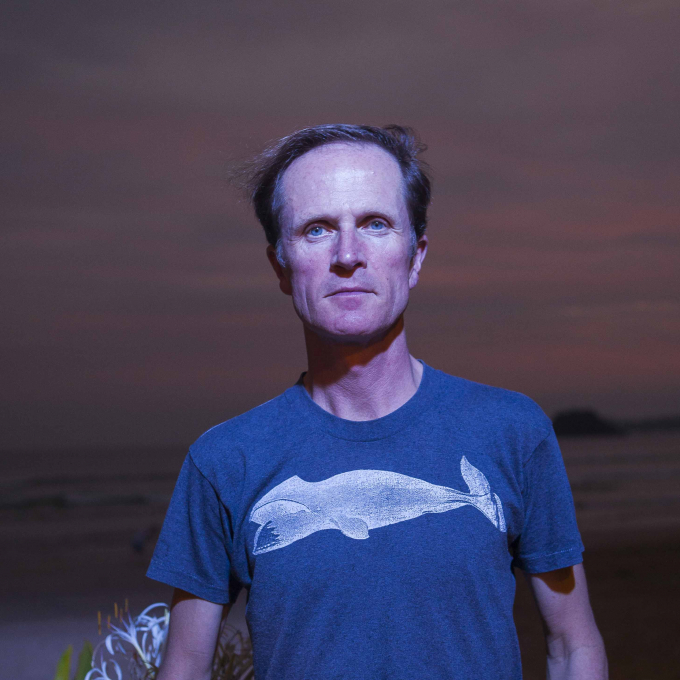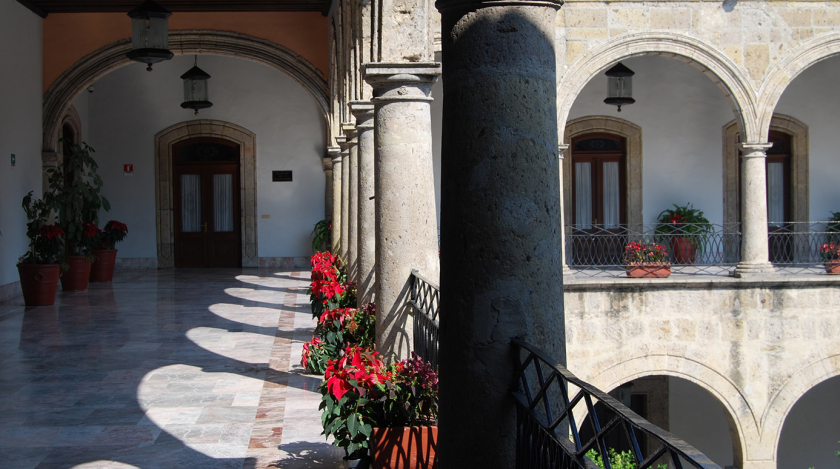
- ©
- Andrew Sutton
Biography
Philip Hoare was born Southampton, England, on 22 May 1958, and educated in Southampton and London, with a degree from the University of London in English and History. After college he became deeply involved in the punk and independent music scene, working for Virgin Records and Rough Trade, and running his own record label, Operation Twilight. He began writing for magazines such as Blitz, iD and The Face, and later was a regular contributor to Harpers & Queen magazine.
Philip's first book, Serious Pleasures (1990), a biography of the aesthete, Stephen Tennant, featured in best selling lists in both Britain and the USA. His biography of Noel Coward (1995), approved by Coward's estate, was acclaimed as the definitive account of the playwright. There followed the critically applauded historical studies, Wilde’s Last Stand (1997), Spike Island (2001), and England’s Lost Eden (2005). His book, Leviathan or, The Whale (2009), won the 2009 BBC Samuel Johnson Prize for non-fiction, and has been published in the US, Germany, Italy and Spain, with forthcoming editions in Portugal and China. His latest book, The Sea Inside, was published in 2013, and has been published in the US and Spain.
An experienced broadcaster, curator and filmmaker, he was advisor to the BBC 2 Noel Coward Trilogy, (1996) as well as Travels with Pevsner (1998) and the BBC 4 film, Royal Victoria Hospital, (2014) based on his book, Spike Island. In 2008 he wrote and presented the BBC 2 film The Hunt for Moby-Dick, and directed three films for BBC’s Whale Night. He has appeared as a visiting speaker for the British Council in Moscow and Berlin. He has appeared at literary and film festivals in Britain, USA, Italy, Sri Lanka, Australia and New Zealand, and has travelled to publicise the Spanish editions of his books, Levitan and El Mar Interieur in Barcelona and Madrid.
Philip is a regular contributor to The Guardian, New Statesman, Literary Review, and Sunday Telegraph, and has reviewed for the Sunday Times, New York Times, Times Literary Supplement, and written features for the Daily Mail, The Observer, Modern Painters, and Frieze. He also writes on contemporary art, and has contributed to artists' catalogues on Peter Doig, Gabriel Orozco, Linder Sterling and David Bowie. He is the co-author of Pet Shop Boys: Catalogue, (UK, US, Germany, 2006) and was co-curator of the National Portrait Gallery's highly successful Icons of Pop touring exhibition (1999-2000). His other curated exhibitions include Cape Whale (Provincetown, Cape Cod, May 2015) and the forthcoming The Tale (Torbay, 2015-2016).
He is co-curator of the Moby-Dick Big Read, a free, online rendition of Melville's classic, with readings by Tilda Swinton, Sir David Attenborough, Stephen Fry, Benedict Cumberbatch, Fiona Shaw, John Waters, Simon Callow, David Cameron and many others, and art by Anish Kapoor, Antony Gormley, Susan Hiller, George Shaw, etc. The site has accrued 5 million hits to date, and received international media attention in Britain, USA, Australia and New Zealand, including the BBC Today programme, and the New York Times. www.mobydickbigread.com
Philip is Professor of Creative Writing at the University of Southampton, and has been Writer-in-Residence at the Ruskin School, University of Oxford, and Leverhulme Artist-in-Residence at the Marine Institute, Plymouth University, which awarded him an honorary doctorate in 2011. He is Special Ambassador for the international charity, Whale and Dolphin Conservation, and each year works as a volunteer on the Dolphin Fleet whalewatch in Cape Cod, where friends accuse him of spending more time with whales than with human beings.
Critical perspective
In an evocative aside towards the conclusion of Spike Island: The Memory of a Military Hospital (2001), his brilliant melding of local history with accounts of his family’s lives and his own, Philip Hoare remarks upon the contrasts between his upbringing in suburban Southampton and ‘the glamour which would ensnare me: Noel Coward, and Stephen Tennant, with his orchid buttonhole and gilt-caged parrot’.
Indeed, these are the subjects of his first two biographies, but they are placed within the tradition of cultural ‘decadence’ and dandyism that has formed Hoare’s consuming passion. In ‘excavating’ the exotica of the past, he argues for the pervasive cultural influence of Oscar Wilde as well as illuminating half-forgotten characters and episodes in our cultural history.
Hoare began in the world of pop music journalism and independent record labels. By his own account, meeting and interviewing the aesthete Stephen Tennant changed his life. This led to the commissioning of Serious Pleasures: The Life of Stephen Tennant (1990), a best-selling biography in both Britain and America. Tennant, an extraordinary aristocratic style ‘relic’ of the 1920s, subject of a famous photograph by Cecil Beaton, exemplified a vanished era in which artistic hedonism went alongside society intrigue. Hoare aptly summarises him as ‘part Peter Pan, part Dorian Gray’. He traces the downward path of the reclusive Tennant’s mental frailties, then his later rediscovery as a cult figure by a younger generation of artistic luminaries.
This elegant androgynous figure makes occasional appearances within Hoare’s other works, for instance glimpsed descending the staircase at the Savoy in Noel Coward: A Biography (1995). Tennant was born into just the kind of circles that Coward aspired to join. The latter had to do so by means of his talents; from modest beginnings as a jobbing actor he rapidly became a highly fashionable playwright and songwriter. Later a favourite of the Royal Family, ‘Noel’s primary asset’ remained ‘his ability to entertain his hosts’. As befits an authorised biography, it is comprehensive in describing Coward’s career, his large entourage of friends, and sympathetic to his sometimes fraught relationships. Hoare’s most telling comparison is of course with Oscar Wilde, not only for the flamboyant style and the wit of his plays but also ‘as a homosexual unable to come to terms with his sexuality’. By the late 1960s, Coward was a much-celebrated stage and screen veteran, yet ‘his experience of a sexually proscriptive society informed his work even now’.
The claimed influence of the ‘cult’ of Oscar Wilde is the subject of Wilde’s Last Stand: Decadence, Conspiracy and The First World War (1997). This recreates a notorious libel trial at the Old Bailey during 1918, in which famed dancer Maud Allen (the first to perform Wilde’s Salome) sued Pemberton Billing, maverick M.P. and publisher of The Imperialist newspaper. It turned into a re-trial of Wilde and a proxy battle between shadowy factions in the Lloyd George government. Billings’ allegations of malign foreign controls over the political and cultural elite were all the more potent during the desperate last months of the war. Hoare argues that these played upon ‘ideas of nationalism, xenophobia, homophobia and anti-semitism which remain with us today’. Among the star witnesses were Wilde’s former lovers Lord Alfred Douglas (now vehemently anti-homosexual) and Robbie Ross. Billing briefly became the commander of a thousand vigilantes and ‘perhaps the Goering we just missed’. Ironically, he later founded the Supermarine aircraft factory – close to Hoare’s Southampton family home.
Hoare’s major achievement is the beautifully written Spike Island, whose subtitle contains the significant word ‘memory’. This is a detailed though poetic history of the Victoria Military Hospital, opened in 1863 to ‘serve an empire’ and located on Southampton Water. Hoare calls it ‘the monster on Netley’s shore’, linking it to the sea monsters of his childhood dreams. It is indeed a dream-like book, featuring Queen Victoria and her hand-knitted ‘ruddy shawl’, pioneering doctors (including psychiatrist R.D. Laing) and nurses, all trying to cope with a vast building unsuitable for its purpose. His family lived nearby, and Hoare infiltrates them into his history by incorporating photographs and anecdotes, some painful, especially of his parents: ‘their memories, threaded between wars, seemed woven into Netley’s hospital’.
There are descriptions, pictures and accounts of the endless traumatized victims of wars and their treatments, notably in D-Block, the mental asylum. He describes viewing a 1917 film of ‘War Neuroses’, and the impressions he formed when breaking into the deserted place with his brother. It still seemed haunted, ‘as though the film of its shell-shocked inmates were being replayed through its etched glass’. Hoare admits that ‘my attempt to rebuild the hospital is an attempt to reclaim my own past; perhaps even to reinvent it’. Demolished in 1966, it nevertheless lives on in his dreams, he concludes elegiacally: ‘the hospital is both there and not there, so it lives on in all the future’s ruins’.
A rather different work, Leviathan or, The Whale (2008) won the prestigious BBC Samuel Johnson Prize for non-fiction. Again, Hoare attributes his interest to his family, when pursuing ‘the fated beast’ in nature, as well as through its images within Melville’s epic novel Moby-Dick. Describing the Anglo-American whaling industry’s rise and fall, Hoare always keeps in mind the peculiar psychological importance of whales to him. Visiting New Bedford, he is reminded of his hometown. Discussion of whale products during the Second World War leads on to vignettes of his mother working in an armaments factory and, later, a moving account of being present at her death in hospital. The book naturally becomes ecological in its concerns for the survival of whale species. His quest concludes by swimming with whales off the Azores, overcoming his childhood fear of water, remarking on their skin being ‘deeply male and musky, strangely sexual and arousing’.
Out of his Southampton roots, living within the sound of the sea, what he has called the ‘mythologizing of my suburban surroundings’, Philip Hoare makes fascinating interconnections throughout his books. In them, glamorous or infamous figures are seen afresh; Wilde, Tennant, Coward, and others, are convincingly placed within a gay artistic heritage. These books are captivating in their recreations and descriptions. They can be enjoyed for their originality, stylishness – as well as the poignancy of their inescapably personal memories and fantasies.
Dr Jules Smith, 2010
Bibliography
Author statement
Fifty-one years ago, I was born in a semi-detached, turreted house on the corner of a suburban street in Southampton. My earliest memory is of climbing out of my cot, reaching to open the heavy Victorian door of my bedroom, and arriving downstairs in the sitting room, to the surprise of my parents and their visitors. Scooping me up in her arms and smiling at my intrepidness, my mother carried me back to bed. Memories – whether personal or at one-remove - have informed my career as a writer. Fifty-one years and six books later, I’ve come to the conclusion that it is only through the personal that we can arrive at some comprehension of the present; that such flash-lit scenes of our own pasts can illuminate the greater picture. Whether whales or giant buildings, 1920s aesthetes or famous playwrights, they are all monsters of their own or our own construction, ultimately elusive for all their grandeur of size or character. And as Ishmael concludes in Moby-Dick, 'God keep me from ever completing anything. This whole book is but a draught - nay, but the draught of a draught. Oh, Time, Strength, Cash, and Patience!'

